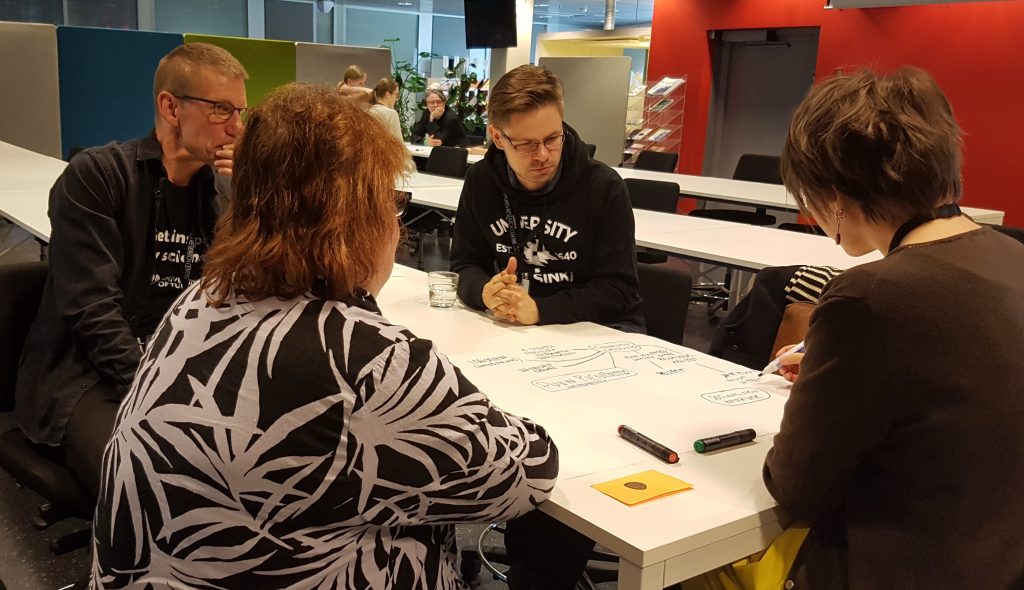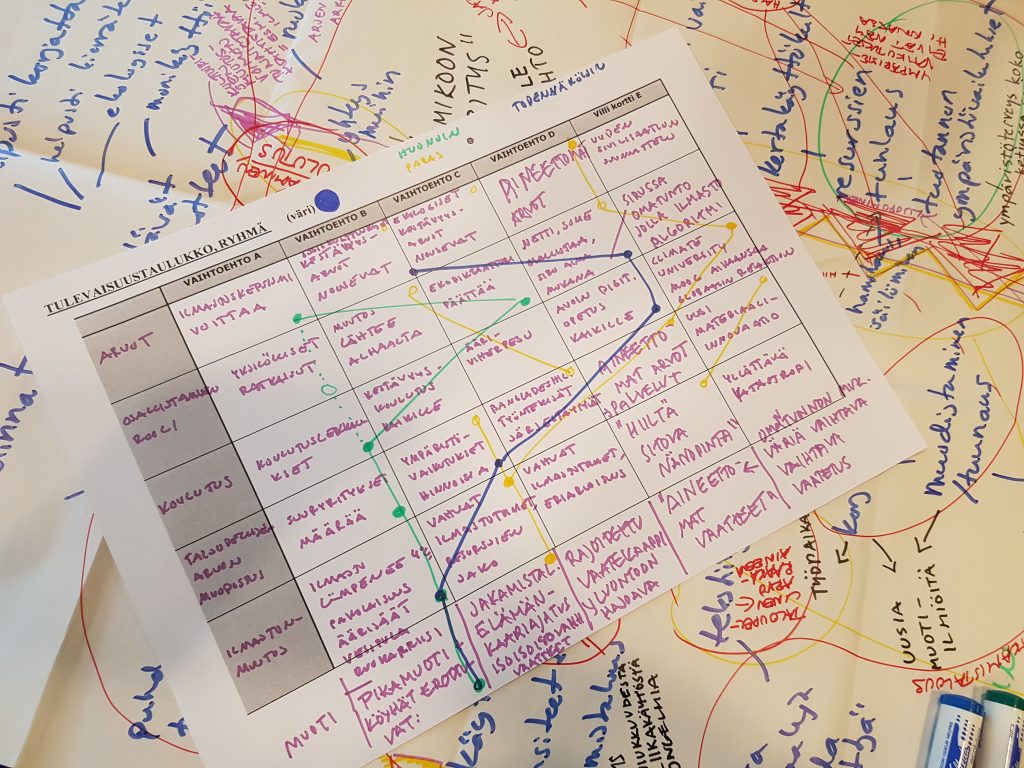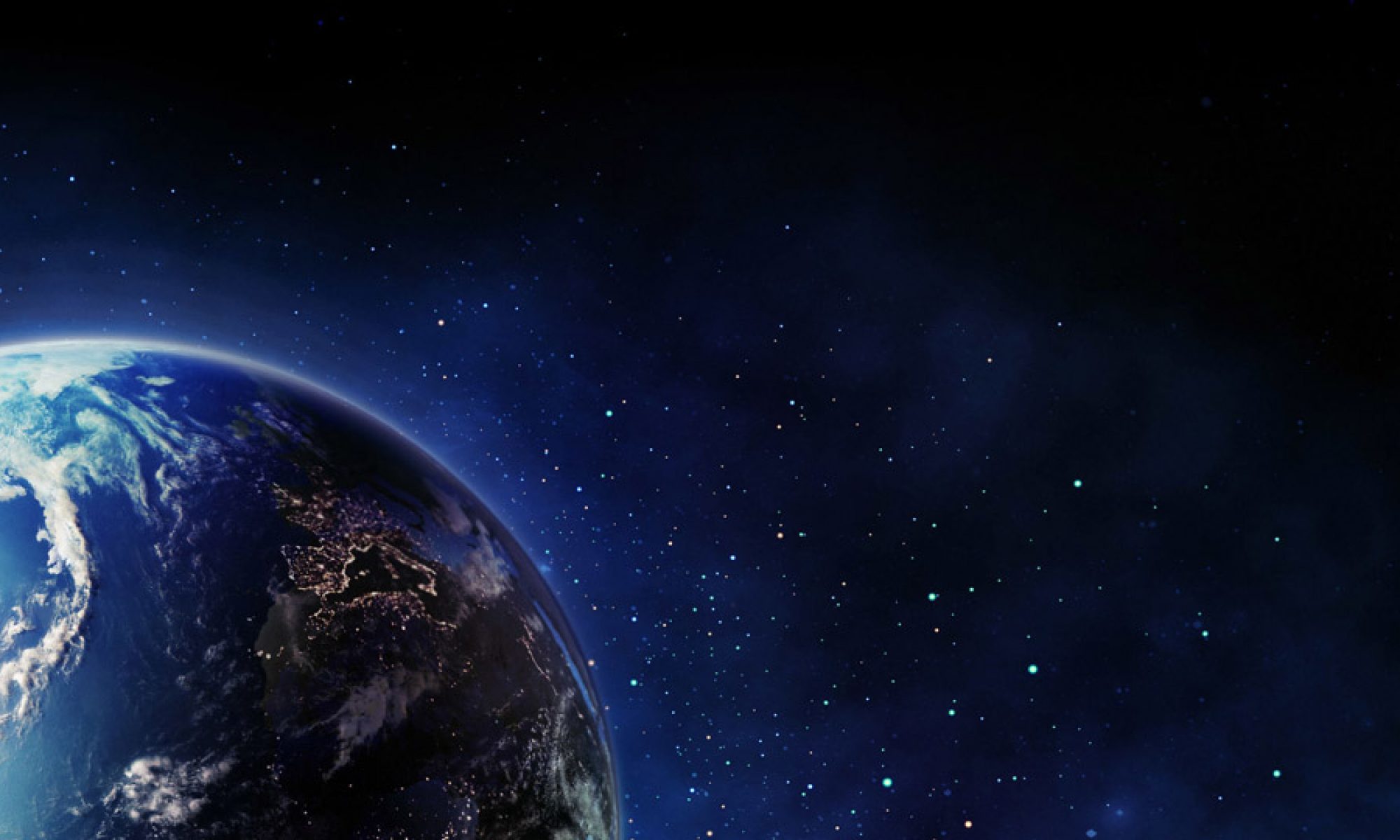Climate University researchers and teachers met in Turku on 7-8 May with the intention of getting a practical touch on how phenomenon based learning works in the context of sustainability challenges. The first day was organized by the University of Turku (and the second by the Turku University of Applied Sciences.)
The first day was divided into two parts, which were, however, seamlessly linked together. During the morning, we introduced the KEKO concept, the learning method of the University of Turku’s Sustainable Development Studies Program. In the afternoon, participants were given the opportunity to experiment with the methodology of futures studies. The idea was also to link the events of the day to the planning of the content of future “Sustainability.now” and “SystemsThinking.now” –courses.

Sustainable Development Training Program KEKO is a prospective Minor for all students at the University of Turku. It consists of a year-long core course (10 credits) as well as optional, sustainable development courses (minimum 15 credits) organized by different faculties and other universities and organizations. KEKO has been literally a phenomenon since birth. Since 2008, a multidisciplinary, long-term group-based and phenomenon learning- based course has brought together 40 students each year to reflect on the different dimensions and challenges of sustainable development. The year-long KEKO core course is long enough to look at complex phenomena and the student’s commitment to both sustainable development and teamwork. The KEKO year has been described by many students as a life-changing experience. “It’s probably the best course I have completed at the university” a former student recently described in his letter.
One of the key elements of KEKO is that most of the learning takes place in multidisciplinary teams, into which students are divided in the beginning of the year. Each team receives a theme, which is studied from the perspectives of the different dimensions of sustainable development. As an example, during this year, one of the themes was “Domestic use of fire-wood” and another one “Fashion”. During the year, students will gain an in-depth view of both their theme and the various dimensions of sustainable development: ecological, social, economic and cultural. Students learn that dimensions cannot be viewed in isolation, but they are all connected.

Above all, KEKO’s strength lies in the fact that students learn working life competence, dialogue, and what collective expertise and group intelligence mean in practice. During the KEKO course, students leave prejudices and learn to work in a team. Respect for other disciplines will increase. In multidisciplinary teams, students learn to understand what they know and how their skills are related to the nature of the disciplines they study. It is also important that KEKO is a safe context for experimenting with co-operation and , sometimes, failure. KEKO offers a safe way to understand that no one in the world can change it alone. Things happen only by influencing and co-operating with others. Contradictions and their solutions are part of life.
During the Turku Workshop 7.5.2019, the perspective was in the afternoon changed to futures thinking and systems thinking as tools for making the sustainable futures: How could we strengthen the power of the co-learning and co-creating by using the idea of alternative futures as tools to dispose the possibilities that may exist at any (given) time and place? How could we start identifying the future images of various forms of sustainabilities as well as the relations and dynamics between them? Instead of pretending to “predict the future[i]“, a very classic method, a form of a futures table learns how to envision futures as an open and complex process with an endless flow of alternative images. It shows the power of narrating and innovating new paths for the future, and how multiple perspectives and even conflicting images must be taken into consideration as a basis for actions in the present.

[i] “The future” cannot be “predicted,” but “preferred futures” can and should be envisioned, invented, implemented, continuously evaluated, revised, and re-envisioned.” Jim Dator, Advancing Futures: Futures Studies in Higher Education. Westport, Connecticut: Praeger, 2002)
Blog by Sari Puustinen and Anna Kirveennummi, Finland Futures Research Centre, University of Turku
Photos: Laura Riuttanen

most inspiring, thanks!
Great to hear! Welcome to the coming workshops!
Laura